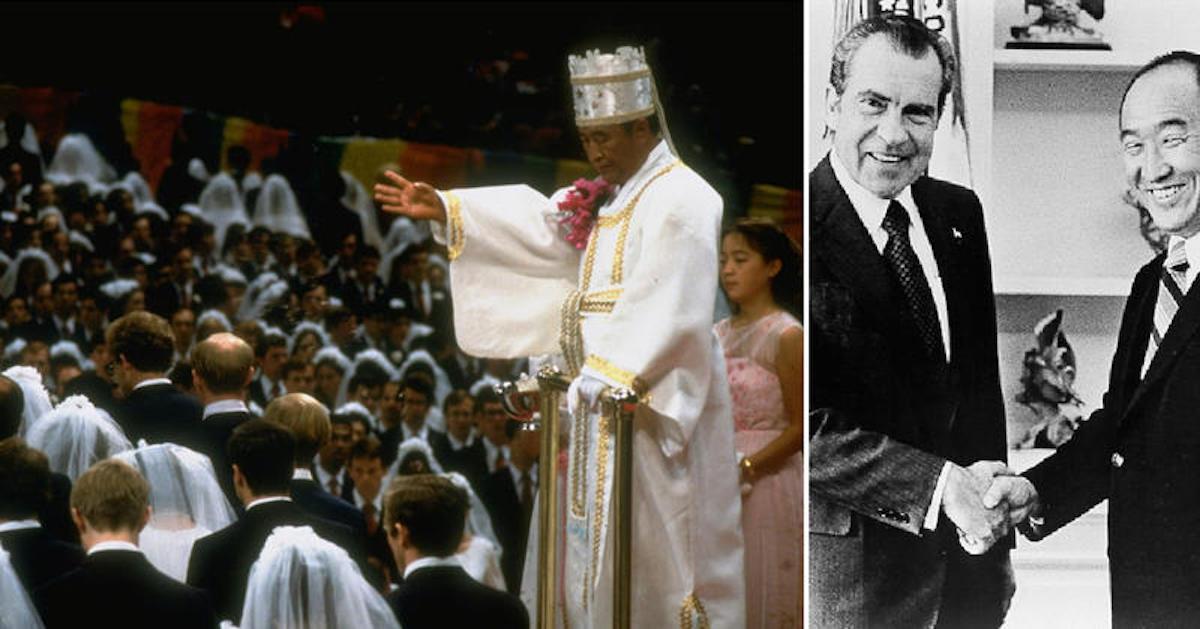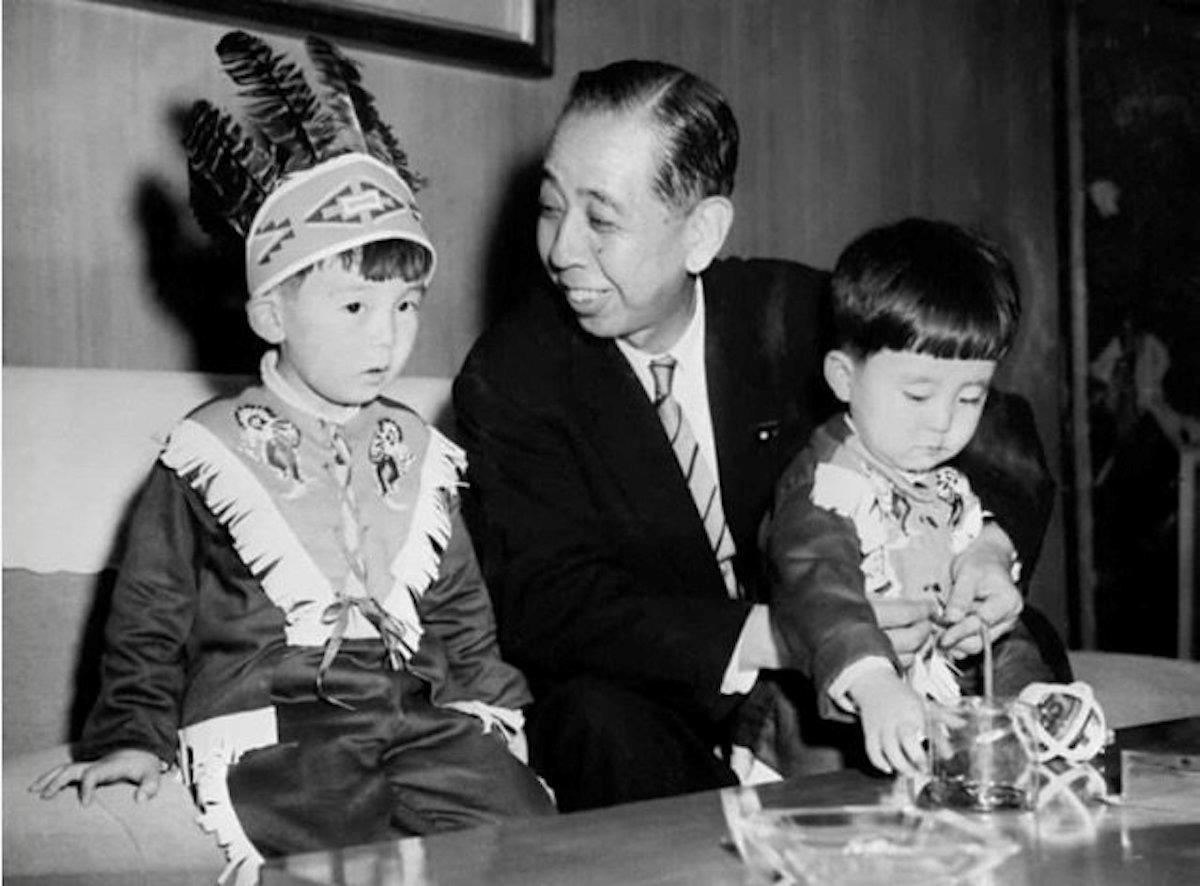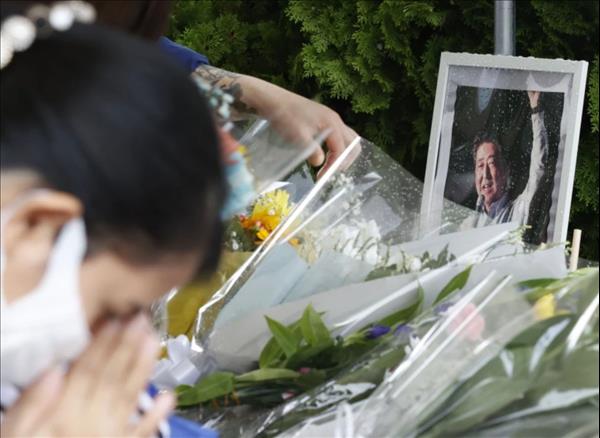
Abe's Death Spotlights Religious-Political Ties
TOKYO – Tetsuya Yamagami, the 41-year-old former member of Japan's Self-Defense Forces who killed Japan's former prime minister Shinzo Abe last week, said during police interrogation that his motive was Abe's close relations with a shukyo dantai, or religious group.
But which religious group? Across Japan, there is a rich collection of groups to choose among. Many have political ties and derive most of their political clout from supplying armies of devotees to assist with propagandizing and by rounding up voters at election time.
Abe's Liberal Democratic Party has long relied on some of these powerful religious groups for both funds and election support.
The mainstream media in Japan were refusing to speculate, but it was not long before a name leaked out via the English language website of Japan's“Family Federation for World Peace and Unification.”
The group is more commonly known worldwide as the Unification Church, while its members are colloquially known as“Moonies” after the name of the late Moon Sun-myung, the Korean who founded the Christian sect in 1954.
In a public statement, the Japanese Unification branch wrote,“Prime Minister Abe was a globally respected statesman of Japan and active in building peace in Asia, a subject close to the heart of our organization…. We pray that his work to build peace in the Indo-Pacific region will endure.”
The church does indeed have geopolitical ambitions: It has maintained affiliations with North Korea – from whence its founder originally hailed – and once sought to build a tunnel linking Japan and South Korea.

Left: Reverend Sun Myung-moon presides over a mass wedding; right: Moon with US President Richard Nixon in 1974.
It is famous, some say notorious, for its efforts to gain high-level political connections – and not just in Japan. In the United States, its founder was jailed for 13 months for tax evasion committed as the group sought to buy US influence and facilities.
Abe was on record delivering greetings to group gatherings. Other high-profile political figures who have recently addressed Unification Church gatherings outside Japan include Cambodia's leader Hun Sen and former US president Donald Trump.
As frequently happens in Japan and elsewhere, people seeking spiritual solace donate to religious groups. Yamagami's mother, it appears, had expended the family's financial reserves – as much as a million dollars' worth of Japanese yen, according to a report by the weekly news magazine Shukan Bunshun – in her deep devotion to the Unification Church.
Yamagumi's revenge was to kill a man who, he believed, had been active in gaining and maintaining the financial support of the church, which some consider a cult.
But the Unification Church is not the LDP's chief religious supporter. By far the larger is the Buddhist-based Soka Gakkai, or Value Creation Society, which claims 12 million members.
The latter outfit has achieved the near-ultimate in political power creation. It has created a powerful political party, the Komeito, which has entered a coalition with the long-ruling LDP.
As a result, Komeito's lawmaker numbers often wield a balance of power that grants them a voice that goes beyond their party's seats – now fewer than 20.
Then there is the Kofuku Kagaku, or“Happy Science” group, which claims 11 million members. They religiously, but unsuccessfully, put up candidates for each election. They are also busy elsewhere, establishing their own university and sending missionaries to the US.
The group called upon LDP contacts in its successful campaign to gain Education Ministry approval for its high school. (Its Happy University is still unapproved.)
Aum and sarin gasMore darkly, there is the notorious doomsday cult Aum Shinrikyo, or Aum Supreme Truth, which set out to terrify Japan with scattered sarin gas attacks. It, too, had tried but failed to gain political power through national elections.
Aum had some connection with the late Shintaro Ishihara who, as Tokyo governor, could tell the police not to inspect the cult's properties. Whether on his account or not, somehow, Japanese police failed to discover the sarin-producing factory in hills just outside Tokyo.
Only after 14 people had been killed in a subway gas attack was it quickly suppressed – but a splinter branch is still tolerated.
Regarding not only Aum but various other religious groups as well, there have been strong allegations of unmistakably sinister activities and high-level collusion.
The National Network of Lawyers against Spiritual Sales (NNLASS) has alleged that some wealthy women who have lost much – or everything – have disappeared without any trace.
And an MIT scholar, Richard Samuels, has pointed to one way in which the LDP, he alleges, has helped religious groups in return for their support: by enlisting police to refuse to clamp down on illegal donations, detentions, kidnappings and other crimes that groups might commit.
The list goes onSimilar to Soka Gakkai is the Buddhist-oriented Rissho Koseikai with a claimed 6.5 million members in 240 centers of worship, and facilities in 20 countries outside Japan. Parties in Japan vie for the support of its members.
The Seicho-no-Ie, or House of Growth – a“New Thought” grouping – used to exercise considerable political power, but its membership, at just over one million, is now falling.
But to return to the Unification Church, its origins in Japan are believed to date back to the Cold War in the 1960s.
That was a time when newly released war criminals and strongly anti-communist conservatives gathered around Shinzo Abe's maternal grandfather, Nobusuke Kishi, to campaign vigorously against then-powerful leftist movements seeking power.
This grouping would go on to found today's LDP in 1955. Kishi became prime minister in 1957, serving until 1960.

Nobusuke Kishi with grandsons. Shinzo Abe is on his grandfather's lap, to the right. Photo: Twitter
At first, those conservatives relied on US Central Intelligence Agency (CIA) money and wealth looted from wartime China to fund their activities. Having gained power, the LDP began to rely also on donations from religious groups that were seeking entry into politics.
The religious groups keep funds for themselves and for paying out large lecture fees. The main help is at election time and can be crucial.
Much international attention has focused on the political role of Japan's native religion, Shinto, notably due to the visits of certain politicians to the Yasukuni Shrine, where Japan's war dead – including a handful of war criminals – are enshrined. But Shinto plays virtually no role in electoral politics.
The religious groups that do get involved in politics largely fund right-wing parties. This may explain why one of the few organizations seeking to combat the religious-political trend is from the left, led by the NNLASS.
NNLASS has described vividly how, it alleges, the Unification Church raises money: The religious body promotes a sense of fear of the“curse of ancestors in the spirit world” and tricks people into buying exorbitantly costly pots and seals, or making donations“to be free from the fatal destiny of ancestors.”
Donations, in sum, have been massive.
A former member of the Unification Church, speaking on condition of anonymity, told Asia Times,“The Japanese Unification Church was a law unto itself. It had a US$2 billion debt in the 1990s and got members to mortgage their houses.”
The donors“never got compensated,” the former Moonie said, adding that such activities,“might have been 'voluntary' in a legal sense.”
Tomihiro Tanaka, president of the Japanese branch of the Unification Church, has recently told vernacular media that Yamagami's mother's donations were based on her own will. But he also de facto admitted that the group had, in the past, been heavy-handed when it came to obtaining donations.
According to the Mainichi Daily , he said that the Unification group“had donation trouble in the past, but we have been in thorough compliance since 2009. Now we do not force people to donate money.”

Legal Disclaimer:
MENAFN provides the
information “as is” without warranty of any kind. We do not accept
any responsibility or liability for the accuracy, content, images,
videos, licenses, completeness, legality, or reliability of the information
contained in this article. If you have any complaints or copyright
issues related to this article, kindly contact the provider above.


















Comments
No comment